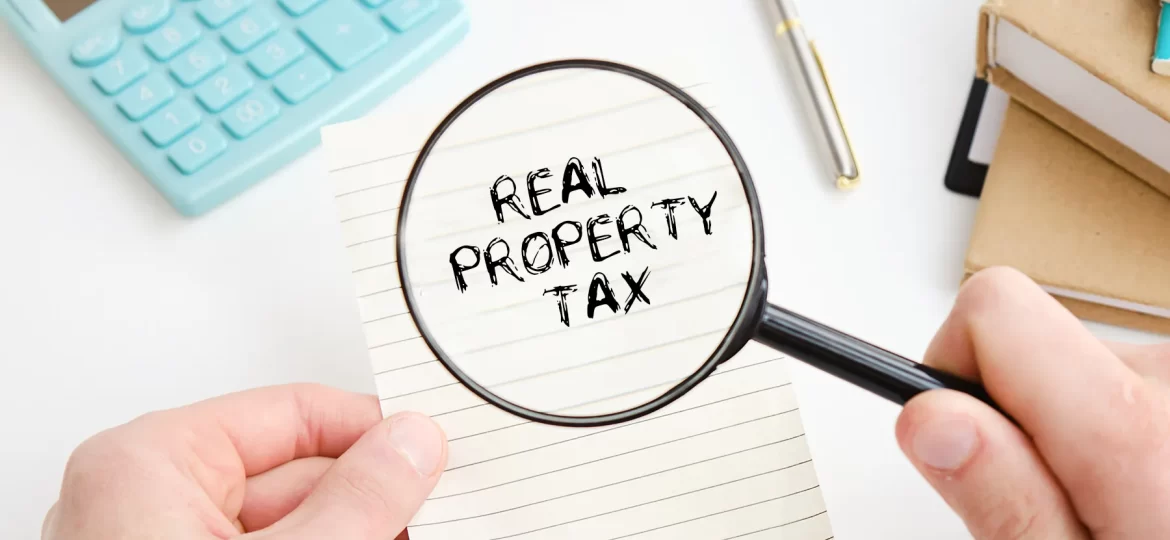
What is real property tax?
A real estate tax is a direct tax on the ownership of lands and building or other improvements thereon, not especially exempted, and is payable regardless of whether the property is used or not, although the value may vary in accordance with such factor. It is a fixed proportion of the assessed value of the property taxed, and requires, therefore, the intervention of assessors. It is collected or payable at appointed times, and it constitutes a superior lien on and is enforceable against the property subject to such taxation, and not by imprisonment of the owner.[1]
What are the kinds of real property tax?
Real property tax may be classified into:
- Basic Real Property Tax; and
- Special Leaves
- For Special Education Fund.
- On idle lands
- By LGUs
What is real property?
Under Article 415 of the Civil Code, the following are immovable property:
- Land, buildings, roads, and constructions of all kinds adhered to the soil;
- Trees, plants, and growing fruits, while they are attached to the land or form an integral part of an immovable
- Everything attached to an immovable in a fixed manner, in such a way that it cannot be separated therefrom without breaking the material or deterioration of the object;
- Statues, reliefs, paintings or other objects for use or ornamentation, placed in buildings or on lands by the owner of the immovable in such a manner that it reveals the intention to attach them permanently to the tenements;
- Machinery, receptacles, instruments or implements intended by the owner of the tenement for an industry or works which may be carried on in a building or on a piece of land, and which tend directly to meet the needs of the said industry or works;
- Animal houses, pigeon-houses, beehives, fish ponds or breeding places of similar nature, in case their owner has placed them or preserves them with the intention to have them permanently attached to the land, and forming a permanent part of it; the animals in these places are included;
- Fertilizer actually used on a piece of land;
- Mines, quarries, and slag dumps, while the matter thereof forms part of the bed, and waters either running or stagnant;
- Docks and structures which, though floating, are intended by their nature and object to remain at a fixed place on a river, lake, or coast;
- Contracts for public works, and servitudes and other real rights over immovable property.
What LGUs are responsible for the administration of real property tax?
The LGUs primarily responsible for the proper, efficient, and effective administration of real property tax are:
- Provinces;
- Cities; and
- Municipalities within Metro Manila.
Who may levy real property tax?
A province, city, or municipality within Metro Manila may levy an annual ad valorem tax on real property such as land, building, machinery, and other improvement not specifically exempted.
Note: Municipalities outside Metro Manila and barangays are devoid of power to levy real property taxes.
Can a private person take charge of the collection of real property taxes?
No. The appraisal, assessment, levy, and collection of real property tax shall not be let to any private person.
What properties are exempt from real property tax?
The following are exempt from payment of the real property tax:
- Real property owned by the Republic of the Philippines or any of its political subdivisions except when the beneficial use thereof has been granted, for, consideration or otherwise to a taxable person;
- Charitable institutions, churches, parsonages, or convents appurtenant thereto. mosques, non-profit or religious cemeteries, and all lands, buildings. and improvements actually, directly and exclusively used for religious, charitable or educational purposes;
- All machineries and equipment that are actually, directly and exclusively used by local Water utilities, and government-owned or controlled corporations engaged in the supply and distribution of water and/or generation and transmission of electric power
- All real property owned by duly. registered Cooperatives as provided under R.A. No. 6938; and
- Machinery and equipment used for Pollution. control and environment protection.
May the local government impose taxes on the national government?
No. Local governments have no power to tax the national government, its agencies, and instrumentalities, except as otherwise provided in the LGC pursuant to the saving clause in Sec. 133 of the. LGC stating unless otherwise provided in this Code”.
Section 234(a) of the Local Government Code states that real property owned by the Republic loses its tax exemption only if the “beneficial use thereof has been granted, for consideration or otherwise, to a taxable person.[2]
Source:
The Local Government Code
[1] Villanueva v. City of Iloilo, G.R. No. L-26521, December 28, 1968.
[2] Manila International Airport Authority v. Court of Appeals, G.R. No. 155650, July 20, 2006


